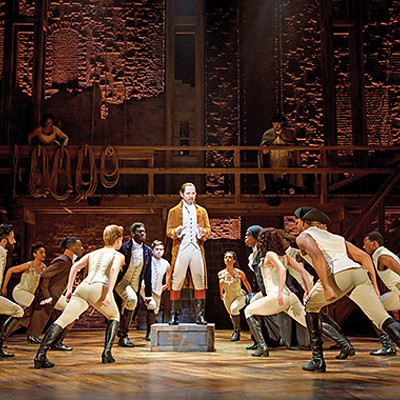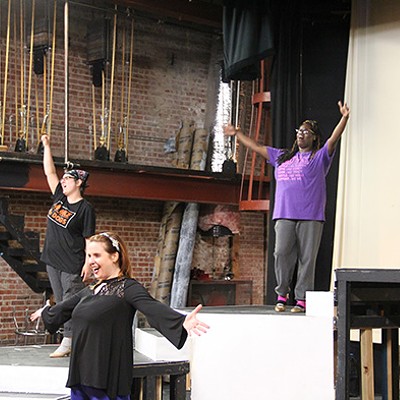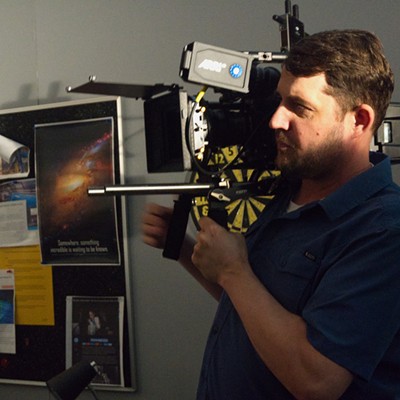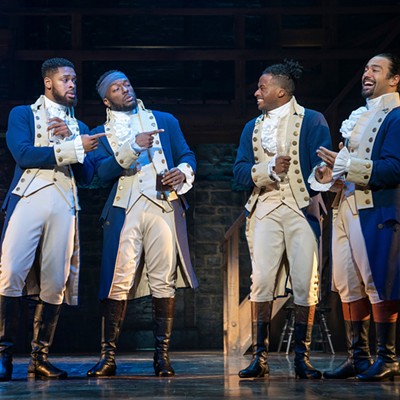Boy, where to start talking about The Pollard Theatre’s production of the “Passing Strange” musical? It’s the best work seen at Pollard in a long time, and when the theatrical year is tallied six months from now, if this does not get Best Musical, this will be one heck of a year for musicals.
All its aspects are well done, but let’s put “outstanding” in front of every cast member’s name. W. Jerome Stevenson as Narrator and Gerrin Mitchell as Youth are the excellent leads, but energetic performances by the rest, most in multiple roles, boost the quality to an extraordinary level.
Rhianna Mack, as a teenage goddess, neo-hippie and avant-garde filmmaker, seems to be three people in one. Good in all roles, but especially as Desi, den mother of a commune of disaffected German artists, Jennifer Teel gives a commanding performance.
The delightful DeLanie Brewer as the sweet Mother is excellent, and Matthew Alvin Brown is terrific, notably as the weird performance artist, Mr. Venus. Tyrone Stanley is fine as the epicene Franklin, a church pianist and minister’s son who’s something else. If you know anything about preachers’ kids, you know what I mean.
Timothy Stewart’s sure-handed direction and Christopher Castleberry’s crackling choreography shape the show into an engaging and poignant whole. James A. Hughes’ effectively simple scenic design, dominated by a backdrop resembling a huge Mondrian painting, and Michael James’ costumes are spot-on. Louise Goldberg leads the fine, four-piece band.
In highly amplified musicals today, lyrics and dialogue are often swallowed up in the electronic din, but here, the sound is finely balanced, and loudness is never confused with clarity.
With book and lyrics by the monomonikered Stew, and a bluesy score by him and Heidi Rodewald, “Passing Strange” opens in 1976 Los Angeles in the middle-class black neighborhood of South Central.
This is not the L.A. of the Watts Riots. This community’s social center is the church, where Youth soon becomes disillusioned with the institutional hypocrisy. He smokes his first joint on the way to choir practice.
Youth makes music his profession and heads for that “shopping mall of vice,” Amsterdam, where he’s astounded to find hashish on the menu and meets a man who’s a philosophy professor and part-time sex worker.
Youth then goes to scary Berlin, where he falls in with the commune of German artists who are so far out of the mainstream — or think they are, anyway — one claims that “punk rock is a marketing strategy.”
Although a satisfying show, “Passing
Strange” does not add anything new to musical theater. It’s a simple
coming-of-age story, and like most musicals written with vernacular
music, it’s barely more than a staged concert.
Narrator
is the older, jaded Youth who finds it hard to forgive himself. Such
notions as “life is a mistake that only art can correct” may induce eye
rolling, but Youth makes it happen. And making it happen is what Pollard
does with this show.












